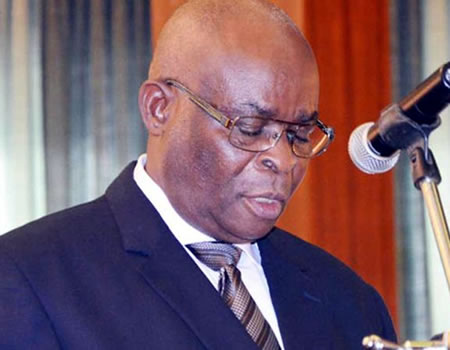CONTRARY to the impression created by the recent string of losses suffered in court by the Economic and Financial Crimes Commission (EFCC), Chief Justice of the Federation. Justice Walter Ononghen has assured that the anti-corruption war is not losing steam.
Speaking to State House correspondents after a meeting with President Muhammadu Buhari on Tuesday, he said the fact that a party in a case has lost in a lower court does not mean the case is done as there are opportunities to test the judgement in higher courts.
He pointed out that there must be a winner and a loser in any case brought before the court but losers have the chance to appeal the case.
Asked if the war is losing steam in the judiciary under his watch, he said: “You take that as losing steam? If there was steam, then it wouldn’t have been without the participation of the Judiciary. Good.
“So, If there is losing of steam, you should not equally relate it only to the judiciary. The fight against corruption has lost no steam. It is not correct.
“Now, you should know one thing: two people will always have a quarrel. They may three or four or one hundred. All the parties to that quarrel will always have different stories to tell.
“By the way our system is fashioned and designed and operated, when you go to a court of law, you cannot have a drawn game. There must be a winner and there must be a loser.
“In our system, a loser has the chance of appealing to the highest court eventually. So, you cannot say because the government or any agency has lost a case in the high court, you have lost a case and the fight is losing steam.
“You should realize that there is a constitution in place and under the constitution, there is a rule of law.
“So, every system under a constitutional arrangement operated under the rule of law, must have these things as checks and balances to protect everyone. It is for everyone.”
The Chief Justice declined to comment on speculation that there may may be a gang up of the judiciary against the executive over the prosecution of prominent judges for corruption.
According to him, “I am not going to speculate. I am Lawyer and judicial officer. I operate on facts and the law. So, I can’t answer that question because I am not on everybody’s mind.
“You are free to think whatever you want to think but I think you should be guided by facts and the law when it comes to judicial performance or discharge of judicial responsibilities.”
He reiterated that whoever is not satisfied with judgment obtained in court should appeal to higher court.
He added: “I have told you that if you are not satisfied, the system is fashioned and designed in such a way that if you lose in the Magistrate court and you are not satisfied; because someone must win and another must lose; so the loser has the chance of testing the decision on appeal. When it comes to the judiciary, don’t be judgmental. When you are judgmental, you become prejudice.”
He expressed his personal commitment to the war against corruption.
“Personally, I am committed to that fight and it remains so. I remain resolute in that commitment,” he said.






